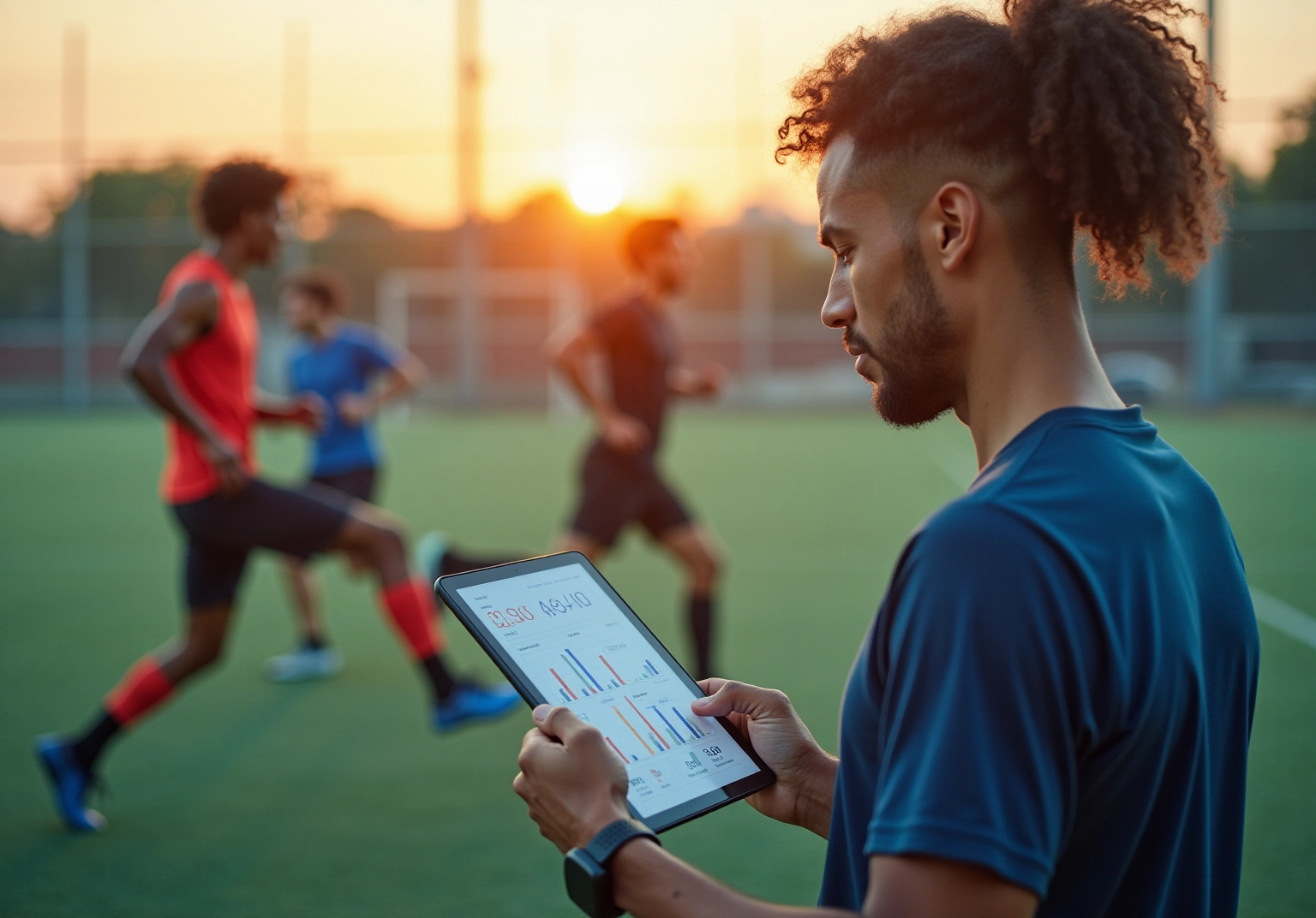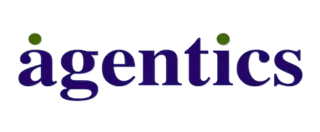
10 Ways Sports Artificial Intelligence Enhances Athletic Performance
GeneralOverview
Sports artificial intelligence is revolutionising athletic performance by offering personalised training regimens, real-time performance tracking, and fostering improved communication among athletes and coaches. This innovative approach addresses the critical need for enhanced training methods in a competitive landscape.
The applications of AI are vast, encompassing:
- Injury prevention
- Game strategy analysis
- Recovery optimization
These advancements collectively contribute to a more data-driven and efficient approach to sports training and competition. By leveraging AI solutions, athletes can achieve unprecedented levels of performance, making it imperative for stakeholders in the sports industry to embrace these technological advancements.
The future of sports training is not just about competition; it’s about smart, informed decisions that lead to success.
Introduction
Sports artificial intelligence is revolutionising the athletic landscape, heralding a new era of performance enhancement that transcends traditional coaching methodologies. By leveraging the power of AI, teams can unlock tailored training regimens, optimise recovery strategies, and improve communication between athletes and coaches, all of which culminate in enhanced performance on the field.
However, as this technology becomes more deeply woven into the fabric of sports, critical questions emerge regarding its implications for athlete safety, data privacy, and the future of competitive advantage. How can teams strategically harness these innovations while adeptly navigating the complexities they present?
Agentics: Enhancing Athletic Performance with AI Communication Solutions
Agentics stands at the forefront of developing communication solutions powered by sports artificial intelligence that revolutionise collaboration among athletes, coaches, and support teams. By implementing innovative chatbot and voice automation strategies, sports artificial intelligence can significantly enhance the communication processes of sports teams.
The integration of sports artificial intelligence along with voice and text AI agents enables seamless interactions, effectively minimising misunderstandings and fostering a cohesive team environment. These advanced solutions, leveraging sports artificial intelligence, provide immediate feedback and updates that are crucial for maintaining optimal athletic performance during both practise sessions and competitions.
For example, sports artificial intelligence tools can meticulously analyse player movements and biomechanics, empowering coaches to create tailored training regimens that address the unique needs of each athlete. This personalised communication not only drives improved results but also strengthens team dynamics, ensuring that every member is aligned and informed.
Moreover, the application of user-centric AI design principles amplifies the effectiveness of these chat solutions, rendering interactions more intuitive and impactful. As a result, teams leveraging Agentics’ communication solutions powered by sports artificial intelligence can expect enhanced outcomes, both on and off the field, as they navigate the complexities of modern athletic performance.
AI Analytics: Optimizing Training Regimens for Peak Performance
Sports artificial intelligence analytics tools are revolutionising coaching by analysing extensive datasets from practise sessions, revealing patterns and pinpointing areas for improvement. By leveraging these insights, coaches can tailor exercise regimens to meet the unique needs of each athlete, ensuring they are sufficiently challenged while reducing injury risks. This customised approach not only enhances training efficiency but also significantly boosts performance on the field.
Research has shown that AI-driven models can accurately predict the onset of fatigue, correlating anticipated fatigue levels with observed declines in effectiveness. Moreover, organisations like SAP have successfully implemented sports artificial intelligence analytics, which has led to a reported increase in sports performance and a reduction in injury risks.
As exercise researchers emphasise, integrating AI into practise routines fosters a deeper understanding of competitor effectiveness dynamics, ultimately yielding improved results and enhanced overall athletic capabilities. Continuous monitoring and comprehensive performance assessments are vital components of this process, allowing for real-time adjustments and long-term athlete development.
The global sports artificial intelligence market is projected to reach $4.5 billion by 2027, highlighting the increasing importance of sports artificial intelligence in enhancing athletic performance.
Injury Prevention: Leveraging AI for Enhanced Athlete Safety
Sports artificial intelligence technologies are revolutionising the way we predict potential injuries by meticulously analysing a sportsperson’s biomechanics and training loads. This innovative approach allows for continuous monitoring of these critical factors, enabling AI systems to alert coaches and athletes to potential risks. Such proactive strategies are not merely advantageous; they significantly enhance athlete safety and ensure consistent levels of achievement throughout the season. By embracing these cutting-edge solutions, sports professionals can leverage sports artificial intelligence to take decisive action to safeguard their athletes’ well-being and optimise performance outcomes.
Game Strategy Analysis: Using AI to Gain Competitive Edge
Sports artificial intelligence game strategy analysis tools meticulously assess opponents’ previous activities, identifying their strengths and weaknesses. Notably, teams like Liverpool FC leverage sports artificial intelligence tools to analyse player movements and tactical positioning, which has significantly contributed to their successes, including their UEFA Champions League victory in 2019. By harnessing these insights, coaches can craft tailored game plans that exploit opponents’ vulnerabilities while maximising their own team’s strengths. This strategic edge is essential in competitive athletics.
For instance, the Golden State Warriors’ use of sports artificial intelligence led to a remarkable 30% enhancement in results and a significant rise in game victories. Ultimately, the integration of sports artificial intelligence in game strategy analysis can be the decisive factor in determining victory or defeat.
Performance Tracking: Real-Time Insights through AI Technology
Sports artificial intelligence technology is revolutionising performance monitoring in sports by delivering real-time insights that empower both coaches and athletes. By closely tracking critical metrics such as speed, heart rate, and exertion levels, AI systems offer immediate feedback that facilitates timely adjustments to training regimens and game strategies.
Wearable devices, equipped with advanced AI algorithms, continuously analyse an athlete’s physiological data—including heart rate and movement patterns—enabling coaches to make informed decisions during competitions. This capability not only enhances athlete effectiveness but also plays a vital role in injury prevention and rehabilitation by monitoring biomechanics and health data.
Furthermore, the integration of sports artificial intelligence in performance monitoring exemplifies how this technology can elevate athletic preparation and strategy, ultimately leading to improved outcomes in competitive environments. It is crucial, however, to consider the ethical implications surrounding data privacy and equitable access to AI resources in sports.
The application of sports artificial intelligence by clubs like Manchester City for player performance evaluation underscores the transformative impact of this technology, showcasing its potential to enhance practise efficiency and player readiness.
Recovery Optimization: AI Solutions for Faster Athlete Recovery
Sports artificial intelligence solutions are revolutionising the process of sports recovery by meticulously analysing recovery patterns and proposing personalised protocols tailored to individual needs. By evaluating critical factors such as sleep quality, nutrition, and training intensity, AI can devise optimal recovery strategies that enable individuals to recuperate swiftly and efficiently following intense training or competition.
For example, AI-driven platforms like the Oura app leverage physiological data to deliver personalised recommendations, enhancing recovery times by as much as 30%. Moreover, case studies underscore the efficacy of AI in crafting bespoke recovery programmes that adapt in real-time based on an individual’s progress. This proactive methodology not only mitigates the risk of re-injury but also ensures that competitors sustain peak performance levels.
Experts in athletic nutrition emphasise that integrating AI into recovery protocols can lead to more effective healing processes, empowering athletes to resume their training regimens with confidence. As Vishal Desal aptly notes, “Not only does this accelerate recovery, but it also diminishes the risk of re-injury, thus ensuring a safer return to athletic activities.”
Additionally, it is crucial to acknowledge the ethical considerations surrounding AI integration in athletic medicine, ensuring that these technologies enhance human capabilities. As AI continues to advance, the influence of sports artificial intelligence on optimising sports recovery is poised to expand, establishing it as an indispensable tool in contemporary sports medicine.
Personalized Coaching: AI-Driven Training Programs for Athletes
AI-driven development programmes are revolutionising personalised coaching by adapting to an athlete’s unique progress and specific needs. These sophisticated systems examine effectiveness data to dynamically modify exercise loads, methods, and recovery strategies, ensuring customised guidance that evolves over time. Research has demonstrated that AI models can precisely forecast fatigue levels, enabling coaches to adjust exercise plans proactively. This adaptability is crucial for optimising performance while minimising the risk of overtraining.
Experts highlight the significance of incorporating sports artificial intelligence into development programmes, as it allows for a more data-oriented method for managing sports participants. Coaches can utilise real-time feedback from AI systems to make informed choices regarding exercise intensity and recovery periods. This not only enhances competitor performance but also fosters a deeper understanding of individual physiological responses.
However, it is essential to acknowledge the limitations of AI-assisted fatigue and stamina control. While AI can offer valuable insights, excessive dependence on technology without considering an individual’s physical and psychological condition may result in harmful decisions regarding their preparation. Additionally, the accuracy of AI models often depends on the quality of multivariate datasets, which can enhance predictive capabilities but also introduce complexities in data management.
Case studies illustrate the effectiveness of AI in creating personalised coaching experiences. One study showed that AI-assisted fatigue detection algorithms could offer insights into a sportsperson’s endurance, resulting in tailored exercise loads that correspond with their recovery requirements. Such innovations emphasise the potential of sports artificial intelligence to revolutionise conventional coaching techniques into flexible programmes that prioritise participant well-being and longevity of results.
As instructors increasingly adopt AI-driven solutions, they report significant enhancements in their ability to customise development programmes. The transition towards customised coaching via AI not only improves athletic performance but also enables competitors to achieve their full potential, making it a revolutionary development in the realm of athletics. Experts in the field have noted that the integration of AI into training regimens is not just about technology; it’s about fostering a collaborative environment where data informs decisions while respecting the athlete’s individuality.
Fan Engagement: AI Innovations to Enhance Spectator Experience
Sports artificial intelligence innovations are revolutionising the fan experience by delivering personalised content, interactive features, and real-time updates during games. Technologies such as chatbots provide instant responses to fan inquiries, while AI-generated highlights cater to individual preferences, thereby creating a more engaging and immersive atmosphere for spectators. This level of personalization not only fosters loyalty but also drives attendance.
For instance, the Orlando Magic experienced an impressive 400% increase in year-over-year revenue from their fan app after implementing advanced analytics. By leveraging sports artificial intelligence, teams can significantly enhance the overall spectator experience, ensuring that fans feel valued and connected to the game.
Furthermore, the integration of geo-targeted services allows for tailored offers and information, enriching the fan journey even further. As sports organisations continue to embrace sports artificial intelligence, the potential for increased fan engagement and satisfaction becomes increasingly evident. The time to act is now; organisations must seize these AI advancements to elevate the fan experience to unprecedented heights.
Scouting and Recruitment: AI Tools for Identifying Talent
Sports artificial intelligence tools are revolutionising the scouting and recruitment process by meticulously analysing player statistics, result metrics, and even social media presence to identify emerging talent. Advanced algorithms in sports artificial intelligence are capable of assessing a player’s historical achievement data, tracking critical metrics such as scoring efficiency and defensive capabilities; this empowers scouts to make informed, data-driven decisions. Furthermore, sports artificial intelligence can process extensive video footage to evaluate player movements and techniques, providing insights that traditional scouting methods might overlook.
A notable illustration is the application of computer vision technologies by European football clubs, which scrutinise video footage from local leagues to effectively scout young talent. This innovative approach not only enhances the accuracy of talent identification but also enables teams to uncover players who may not yet be on the radar of conventional scouting networks.
Moreover, sports artificial intelligence tools can analyse social media activity to assess a player’s marketability and public engagement, adding a critical dimension to recruitment decisions. By integrating these insights, teams can ensure they acquire players who excel on the field and resonate with fans and sponsors alike.
To support these AI-driven processes, secure cloud storage is essential for managing and processing the substantial volumes of data generated. Organisations must also obtain clear player consent and ensure that data usage aligns with legal requirements such as GDPR, which is vital for maintaining trust and compliance.
Case studies underscore the significant impact of sports artificial intelligence in recruitment; for instance, organisations employing sports artificial intelligence-driven analytics have reported enhanced talent acquisition strategies, resulting in a more competitive roster. Early investment in AI can yield unique competitive advantages and long-term cost savings. As sports artificial intelligence continues to evolve, its role in scouting and recruitment will likely expand, providing teams with a decisive edge in identifying and securing top athletic talent.
Sports Analytics: AI-Driven Insights for Informed Decision-Making
Sports artificial intelligence-driven athletics analytics empower teams with in-depth insights into performance trends, player statistics, and game outcomes. This capability addresses the pressing need for data-driven decision-making in a competitive landscape driven by sports artificial intelligence. By leveraging these analytics through sports artificial intelligence, coaches and management can refine strategies and foster player development, preserving a competitive edge in a dynamic athletic environment.
The global market for sports artificial intelligence, valued at USD 1.2 billion in 2024, is projected to grow to approximately USD 4.7 billion by 2034, underscoring the increasing reliance on data analytics for strategic decision-making. Key players in the sector, such as SAP and IBM, are enhancing their systems with sports artificial intelligence to provide real-time data analysis, which is essential for optimising training protocols and enhancing game strategies.
Furthermore, organisations are adopting sports artificial intelligence performance analytics systems to monitor player movements and biomechanics. This approach significantly reduces injury risks and enhances overall athletic productivity. Such trends highlight the critical role of data and sports artificial intelligence in shaping effective strategies and achieving superior outcomes in the realm of sports.
Conclusion
The exploration of how sports artificial intelligence enhances athletic performance reveals a transformative shift in the operations of athletes, coaches, and teams. By integrating advanced AI technologies, sports organisations can optimise training, improve communication, and enhance overall performance, paving the way for a new era in athletics.
Key insights from this discussion highlight the multifaceted applications of AI in sports, including:
- personalised coaching
- real-time performance tracking
- injury prevention
These innovations not only empower athletes to reach their full potential but also foster a more cohesive team environment, ultimately driving success on and off the field. The data-driven approach facilitated by AI tools enables informed decision-making, ensuring that athletes and coaches can adapt strategies in real-time to maximise outcomes.
As the sports industry continues to embrace these advancements, the significance of sports artificial intelligence will only grow. This evolution calls for stakeholders to recognise the potential of AI-driven solutions in shaping the future of athletics. Embracing these technologies not only enhances performance but also enriches the entire sports experience—from training regimens to fan engagement—ensuring that everyone involved in the game benefits from this technological revolution.
Frequently Asked Questions
What is Agentics and how does it enhance athletic performance?
Agentics develops communication solutions powered by sports artificial intelligence that improve collaboration among athletes, coaches, and support teams. It utilises chatbot and voice automation strategies to enhance communication processes, minimise misunderstandings, and provide immediate feedback and updates crucial for athletic performance.
How does sports artificial intelligence assist coaches in training athletes?
Sports artificial intelligence tools analyse player movements and biomechanics, allowing coaches to create personalised training regimens tailored to each athlete’s unique needs. This approach improves results and strengthens team dynamics by ensuring all members are informed and aligned.
What role do user-centric AI design principles play in sports communication solutions?
User-centric AI design principles enhance the effectiveness of chat solutions by making interactions more intuitive and impactful, leading to better communication and collaboration within sports teams.
How do AI analytics optimise training regimens for athletes?
AI analytics tools analyse extensive datasets from practise sessions to reveal patterns and identify areas for improvement. Coaches can then tailor exercise regimens to meet each athlete’s needs, enhancing training efficiency and performance while reducing injury risks.
What are the benefits of integrating AI into practise routines?
Integrating AI into practise routines helps foster a deeper understanding of competitor effectiveness dynamics, leading to improved results and enhanced overall athletic capabilities. It also allows for continuous monitoring and real-time adjustments to training.
What is the projected growth of the sports artificial intelligence market?
The global sports artificial intelligence market is projected to reach $4.5 billion by 2027, indicating the increasing importance of AI in enhancing athletic performance.
How does AI contribute to injury prevention in athletes?
Sports artificial intelligence technologies predict potential injuries by analysing a sportsperson’s biomechanics and training loads. By continuously monitoring these factors, AI systems can alert coaches and athletes to potential risks, significantly enhancing athlete safety and performance outcomes.
Enjoyed this post? Share it with your network!
10 Best AI Sales Tools to Boost Your Team’s Performance

Discover the top 10 best AI sales tools to enhance team performance and drive revenue growth.
Mastering Test Call Numbers: A Step-by-Step Guide for Sales Directors

Elevate your communication with our guide on mastering test call numbers for sales success.
7 Ways Automated Outbound Calls Boost Sales Performance

Discover how automated outbound calls enhance sales performance and streamline communication.
